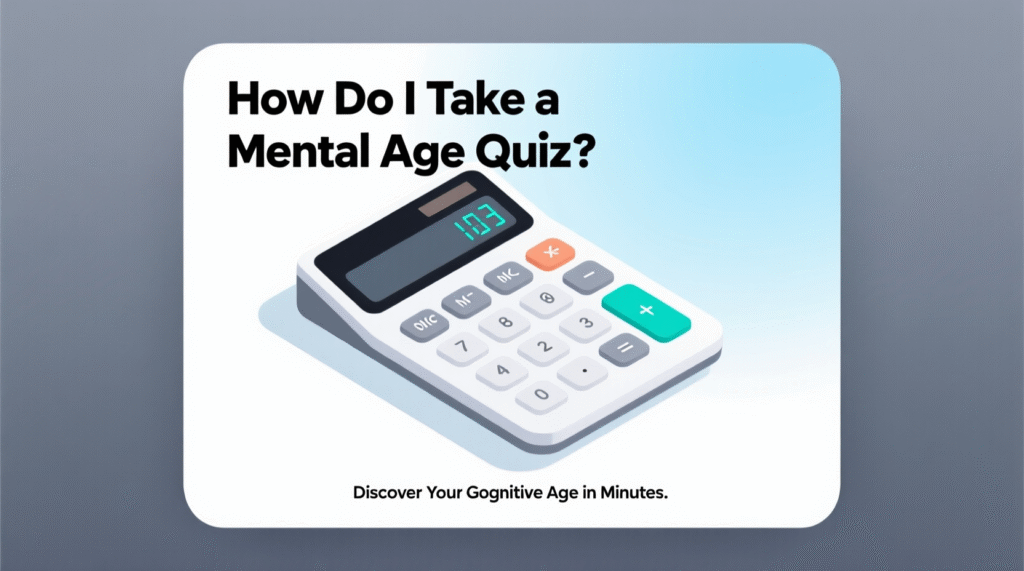
A mental age quiz is a quick way to see how your mindset compares to your real (chronological) age. While your birth date shows how many years you’ve lived, your mental age reflects how you think, react, and approach life. Taking a quiz can give you insights into your personality, maturity, and even your emotional strengths.
To take a mental age quiz:
- Choose a reliable online test.
- Find a quiet space.
- Answer the questions honestly.
- Review your result.
- Reflect on what it means for your mindset and personality.
Step-by-Step Guide
1. Pick a reputable source
Not all quizzes are equal. Some are just for fun, while others are built on psychological concepts. Look for ones that clearly explain their purpose. Try the Mental Age Calculator for a structured option.
2. Set aside a few minutes
Most quizzes only take 3–7 minutes. They usually ask about habits, preferences, and reactions to everyday situations.
3. Answer naturally
Don’t overthink your choices. Go with the response that feels most true to you—this makes the result more reflective of your mindset.
4. Review your results
Your mental age may come out younger, older, or close to your actual age. None is “better”—each simply highlights different personality strengths.
5. Reflect on the outcome
Ask yourself:
- Does this fit how others describe me?
- Does it explain how I handle stress, relationships, or decisions?
- What does it reveal about my growth opportunities?
What Mental Age Quizzes Usually Measure
| Category | What’s Evaluated | Example Question |
|---|---|---|
| Lifestyle | Risk-taking, planning, or playfulness | “Do you prefer routine or surprises?” |
| Emotional response | How you handle stress or conflict | “Do you stay calm when things go wrong?” |
| Social outlook | How you interact with others | “Do you enjoy being around younger crowds?” |
Explore how your mental age vs real age balance influences the way you process information.
Tips for Better Accuracy
- Take the quiz when you’re calm and focused.
- Avoid rushing—steady answers reflect your real mindset.
- Retake after major life changes to see if your mental age shifts.
Why It’s Worth Trying
- Self-awareness: See how your thinking aligns (or doesn’t) with your age group.
- Growth insight: Spot traits you might want to strengthen.
- Fun perspective: Compare results with friends or partners to understand differences.
Emotional understanding can enhance intelligence — try our psychological maturity test to explore that link.
FAQs
Q: How long does a mental age quiz take?
Usually under 10 minutes.
Q: Can I retake the quiz?
Yes. Your mental age can shift as your life and experiences change.
Q: Are results scientific?
Some quizzes have psychological grounding, but most are reflection tools, not diagnoses.
Q: What if my mental age is very different from my real age?
That’s normal. It may explain why you feel “older” or “younger” than people around you.
Final Thoughts
Taking a mental age quiz is simple: find a trusted source, answer with honesty, and use the result as a way to learn about yourself. Your mental age isn’t about numbers—it’s about understanding your mindset and how it shapes your personality.
- You can start immediately by visiting the mental age test on our homepage.
- A step-by-step breakdown of the process is provided in how to take a mental age quiz.
- The logic behind question scoring is explained in our methodology.
- Once finished, your personal profile appears on the results page.
- The meaning of each score range is outlined in age ranges.
- Tips for using your outcome can be found in the improvement guide.